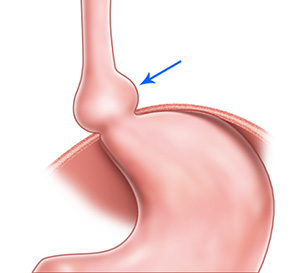
Experiencing shortness of breath can be a distressing situation, especially if it isn’t preceded by exercise but by eating. While there can be several reasons for shortness of breath after eating, one reason can be a hiatus hernia.
A hernia forms when an organ or tissue squeezes into a part of the body where it does not usually belong. A hiatus hernia, or hiatal hernia, happens when part of the stomach bulges up into the chest through the wall of muscle that separates the lungs and diaphragm from the abdomen. This type of hernia can cause shortness of breath, which can worsen after eating. A second type of hiatus hernia called a paraesophageal hernia occurs when the stomach bulges up next to the esophagus. This type of hernia can push on the diaphragm and lungs if it becomes too large, which can also lead to shortness of breath and chest pain.
Hiatus hernias do not always require medical attention. Some hiatus hernias cause no symptoms or mild symptoms. But, sometimes people experience symptoms, such as acid reflux or GERD, which can become severe. When symptoms interfere with quality of life, do not respond to treatment, lead to esophageal stricture, cause bleeding or ulcers, or are at risk of becoming strangulated, surgery may be warranted.
If you are experiencing symptoms of a hiatus hernia that may need intervention, schedule your consult with Dr. Shillingford, MD, PA by calling (561) 483-8840. Dr. Shillingford’s specialty in laparoscopic and robotic surgery puts him as a leader in gastrointestinal surgeries, including gastric sleeve, gastric bypass, gastric band, appendectomy, cholecystectomy, and hernia surgeries. His Boca Raton office is convenient for patients from surrounding areas, such as Wellington, West Palm Beach, Coral Springs, Miami, Fort Lauderdale, and Delray Beach. To learn more about the different types of hernias Dr. Shillingford commonly sees in his surgical practice, please go to www.drshillingford.com/hernia.html

 Am I A Candidate
Am I A Candidate  BMI Calculator
BMI Calculator  Why Choose Us
Why Choose Us